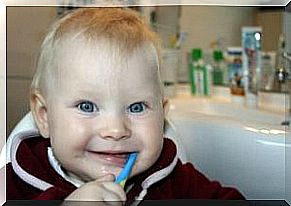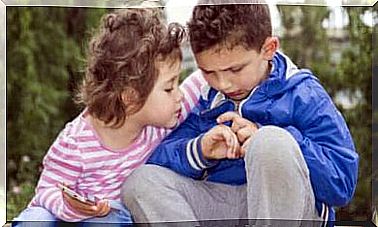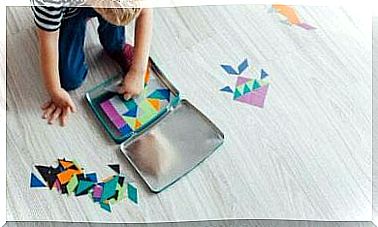Your Child Doesn’t Want To Brush His Teeth, What To Do?

Oral hygiene education is essential during the growth and development of our children. Teaching should begin when children begin to eat solid foods, to avoid the consequences generated by food remains in the mouth. So let’s see how to teach him to brush his teeth.
A good alternative to stimulate and strengthen learning so that our child can brush his teeth voluntarily and as often as necessary, is to capture his attention through games, demonstrations or songs.
“Have you brushed your teeth yet?
Now I will teach you how to brush your teeth
The top teeth brush downward
The lower teeth brush upwards
And the molars you should brush them in circular motions
And don’t forget to wash them three times a day ha ha ..
Maruca Galindo – Song Wash Your Teeth “
There are factors that can influence the initial rejection such as the taste of the toothpaste. Therefore, it is very important to find a more pleasant flavor that does not generate rejection.
It may seem at first that everything we do is not getting us close and that it will be a mission impossible, but we must not give up. We often make the mistake of “quitting teaching” and constantly repeating what is really important to stimulate them.
We must not forget that children when they are young need habits and learn more through repetition. The example of dad and mom is also crucial in teaching them the importance of brushing their teeth.
As your child grows, oral hygiene becomes more important, as the more teeth come out and the more solid food they eat, the more likely it is that tooth decay is formed due to lack of proper habits.
Poor oral hygiene will lead to the appearance of tooth decay. This generates bad smell and sensitivity to the temperature and texture of some foods.
Brush your teeth, you have to make it fun
What if your child doesn’t want to brush their teeth? It is important to use attractive tools and methods so that he feels motivated. We tell you some:
- Buy a toothbrush with a character they like or with little lights. Let him participate in the choice, in this way he will feel more involved. The idea is to please him and gradually create the habit of brushing his teeth, as soon as he gets up, after every meal, after eating candy and at bedtime.
- Brush your teeth all together. Children imitate the behavior of parents, grandparents and siblings.
- Having consistency day by day will guarantee success! Brushing your teeth regularly will create a lifelong habit of doing it.
- Ask mom and dad for help brushing your teeth. This will motivate them and make them feel great and smart. Later we will have the opportunity to ask them the same thing.
- Visit the specialist regularly. It is important to attend the first visit with a pediatric dentistry specialist who will also be a support and guide in this process. Having future appointments on your agenda to attend on time is essential to have good control.
Remember that every child is different, and strategies that work for your child’s age may not necessarily work for them.
Be consistent
You may think “they are still small” and not paying enough attention because they are “children”; but as they grow, dental problems will become more acute.
Sometimes it happens that we are not constant in matters like these, due to the commitments that our home requires. For this reason, you must be clear about the consequences of inadequate oral hygiene, as it is a priority for your child’s health.
We agree that this job requires a lot of perseverance and patience, yet everyone learns. The younger we start with creating this habit, the more likely they are to learn it.
Perfection in brushing won’t come until they’re older. However, with our timely supervision we can avoid unwanted damage.









